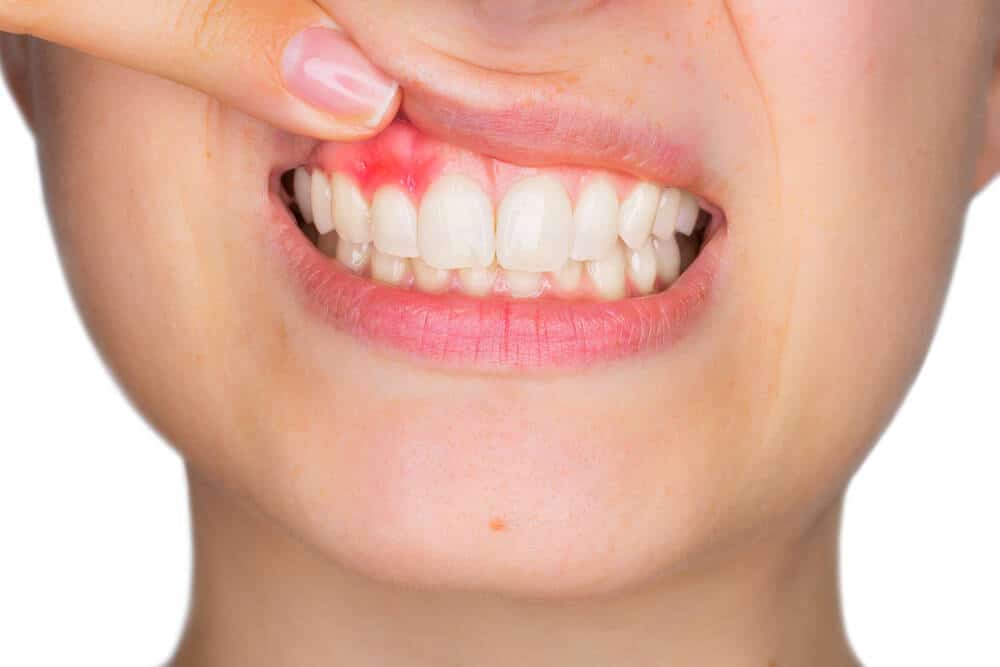Bleeding gums are a sign of gum disease and can be a serious health concern if ignored and not taken care of properly. The primary cause is plaque build-up, which erodes your teeth’ enamel. When this happens, the gums start to recede from your teeth, and you lose space in between them. This also allows for a more significant plaque accumulation, leading to infection.
Bleeding gums are a common problem among children and adults. If you are experiencing this situation, the soft tissue at the base of your teeth may get irritated. This can cause the tissue to swell, crack or bleed when you eat foods such as ice cream, nuts, or hard candy. Bleeding gums can also develop from long-term brushing with a hard-bristled brush or a hard toothbrush that has worn down.
To make sure your dental health stays strong, you’ll need to take a few measures so that you can make healthy improvements and take great care of your dental well-being. Our dentists at DICC help you throughout the treatment process and provide top-notch dental services.
Diseases that could lead to Bleeding Gums
Periodontitis
Periodontitis is a bacterial infection that can lead to gum disease. The infection can be caused by plaque, the film of bacteria that forms on the teeth after eating. If you don’t remove plaque daily using good oral hygiene habits, the bacteria can build up and cause inflammation in your gums.
Treating periodontitis involves treating the root of your gum disease and making changes to your lifestyle as well, such as trying to stop smoking if you smoke, cutting down on soda intake, and quitting snacking at night. Bleeding gums are one of the symptoms of periodontitis. Other signs include receding gums and loose teeth. If you notice any of these symptoms, it’s a good idea to visit your dentist right away.
Gingivitis
Bleeding gums are an early sign of gingivitis or gum disease. Gingivitis affects the soft tissue around your teeth, including the gums and bones that support them. It can also lead to periodontitis, damaging the bone that supports your teeth, potentially leading to tooth loss. The bacteria that cause gum disease can also contribute to heart disease and stroke. Hence treating the condition right away should be your priority when you recognize any symptoms.
Infection
Gum inflammation can often be traced back to an infection in one of two ways: Poor oral hygiene may allow plaque to accumulate on your teeth and lead to gingivitis (inflammation of the gums), leading to periodontal disease. If left untreated, gum disease may cause tooth loss. It may also be caused by genetic susceptibility, oral piercings, or orthodontic devices such as braces. These factors are beyond your control, but you can take steps to prevent or treat bleeding gums if you have them.
Scurvy
Bleeding gums are a classic sign of scurvy caused by vitamin C deficiency. Vitamin C acts as an antioxidant and a coagulant in the body, helping wounds heal and blood clot. You are susceptible to bleeding gums, loose teeth, bruising, and more severe bleeding without it.
Treatment for scurvy involves replacing the vitamin C lost through diet, and this is done with supplements containing L-ascorbic acid (vitamin C).
How to stop your gums from bleeding?
Brush your teeth regularly
Both before bedtime and after you wake up, brush your teeth thoroughly. Brush at least twice a day and make sure that you brush all sides of your teeth, including behind them.
Floss daily
Flossing is an essential part of the overall oral hygiene process because it will help remove food particles stuck between your teeth. Not flossing can lead to gum disease.
Visit a dentist regularly
Your dentist will be able to give you advice regarding what to do if you’re experiencing bleeding gums, as well as provide other services such as cleaning and examinations. If you have no dentist, you can visit our dental clinics in Cherry Creek, Boulder, and Broomfield, and our dental experts will guide you best on how you can lessen the complications of bleeding gums. We use the latest technology and undergo a thorough examination of your oral cavity to assess your condition and determine what’s causing the bleeding gums.
Keep a close eye on your symptoms
Bleeding gums can be an early sign of more severe health issues such as significant gum disease, lack of blood clotting factors, or periodontitis. By paying close attention to abnormal signs, you will be able to visit your dentist at the earliest to prevent the development of a severe dental condition.
How can dental experts at DICC help stop your gums from bleeding?
Our dental experts help prevent your gums from bleeding by ensuring you receive the best dental care at your earliest. Whenever you recognize any abnormal signs and bleeding, we suggest you visit our dental clinics at DICC. Our dental surgeons will assess your condition and determine what’s causing the bleeding gums.
The first step in stopping the bleeding is scheduling a consultation at Dental and Implant Centres of Colorado. During the consultation, our dentists will examine your teeth and gums and use their expertise to determine the cause of your bleeding gums. Then, our dental surgeons will develop a treatment plan designed to stop the bleeding and reverse gum disease if necessary.
If you’re concerned about causing your bleeding gums, please contact us today to schedule an appointment with us.




